Tag:
partnerships
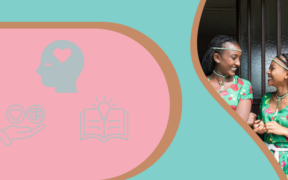
Explore the initiatives taken by Knowledge SUCCESS to enhance knowledge sharing and capacity building in East Africa's health sector.
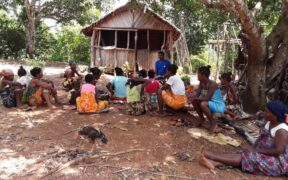
Blue Ventures started integrating health interventions, addressing a huge unmet need for family planning. We came to understand that we were addressing a health need which is part of a broader ecosystem consisting of conservation, health, livelihood, and other challenges.
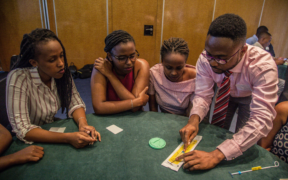
Descriptive analysis of financial data trends in Nigeria, specifically in Ebonyi State, painted a rather gloomy picture for family planning (FP). Dr. Chinyere Mbachu, Doctor at Health Policy Research Group, College of Medicine at the University of Nigeria, and co-author of this research discussed how financing has an impact on reproductive health (RH) family planning.
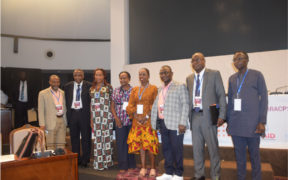
La Communauté de pratique sur la PFPP intégrée à la Santé Maternelle Néonatale et Infantile et Nutrition a tenu du 18 au 19 Mai 2022 au Togo sa 3ème réunion régionale de plaidoyer, sur le thème « Faire avancer l’intégration de la PFPP, SMNI et Nutrition pour relever le défi de la couverture sanitaire pour la femme et l’enfant dans le contexte de crises sécuritaire et sanitaire en Afrique de l’Ouest ».
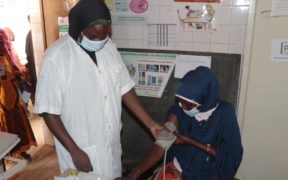
En contribuant à un programme mondial de recherche et d'apprentissage sur la programmation intégrée de la CSC, Breakthrough RESEARCH, le projet phare de l'USAID sur la génération de preuves de la CSC, aide à générer des données pour améliorer cette approche importante.
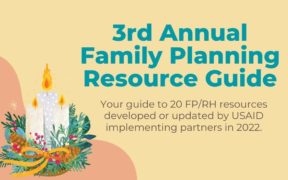
Introducing the third version of our family planning resource guide. Consider this your holiday gift guide for family planning resources.
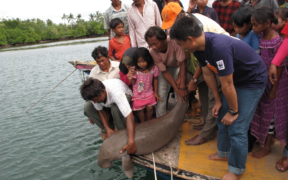
In March 2021, Knowledge SUCCESS and Blue Ventures, a marine conservation organization, collaborated on the second in a series of community-driven dialogues on People-Planet Connection. The goal: to uncover and amplify the learnings and impact of five national PHE networks. Learn what network members from Ethiopia, Kenya, Madagascar, Uganda, and the Philippines shared during the three-day dialogue.
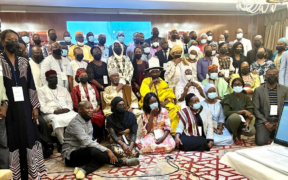
Depuis sa création, le Partenariat de Ouagadougou (PO) œuvre pour l’amélioration et la promotion de la santé reproductive et l’accès à l’information et aux services de planification familiale dans la sous région Ouest Africaine Francophone. Pour optimiser cette lutte, les Gouvernements, les donateurs du PO, et les partenaires de mise en œuvre locaux et internationaux se sont appuyés sur les organisations de la société civile (OSC) y compris les organisations locales basées dans les neuf pays du PO afin d’identifier les besoins et les priorités en matière de santé reproductive au sein de leurs communautés.
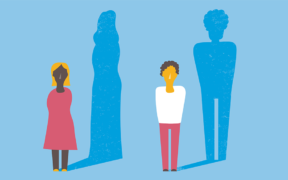
On November 18, Knowledge SUCCESS and FP2030 hosted the fourth and final session in our concluding set of conversations in the Connecting Conversations series. In this session, speakers discussed critical ways to improve trust-based partnerships with youth-led organizations, donors, and NGOs to effectively improve AYSRH.
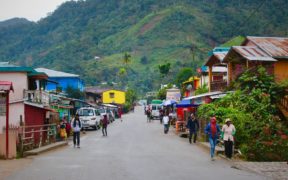
Madagascar has remarkable biodiversity with 80% of its flora and fauna found nowhere else in the world. While its economy is highly reliant on natural resources, significant unmet health and economic needs drive unsustainable practices. In the face of growing uncertainty—Madagascar is extremely susceptible to climate change—we spoke to Madagascar PHE Network Coordinator Nantenaina Tahiry Andriamalala about how early population, health, and environment (PHE) successes have led to a rich network of organizations working to address health and conservation needs in tandem.













